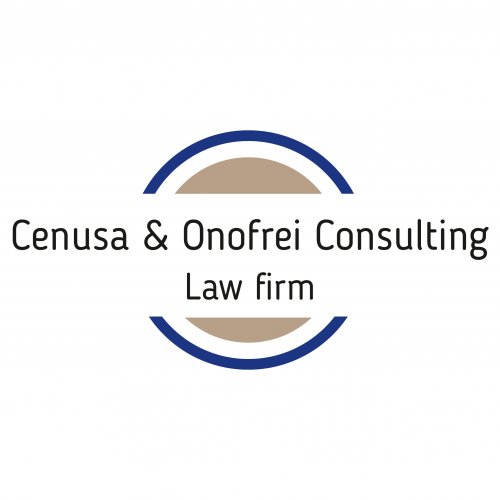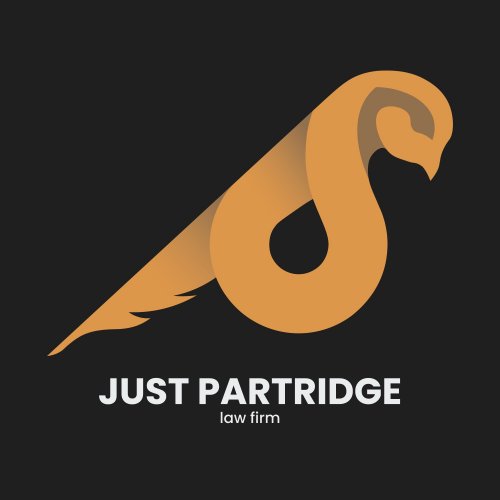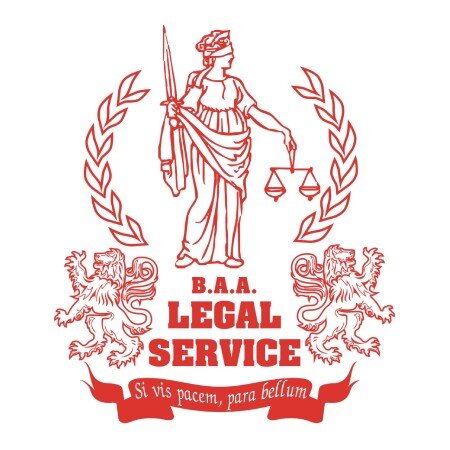Best Restructuring & Insolvency Lawyers in Chisinau
Share your needs with us, get contacted by law firms.
Free. Takes 2 min.
List of the best lawyers in Chisinau, Republic of Moldova
About Restructuring & Insolvency Law in Chisinau, Republic of Moldova
Restructuring and insolvency law in Chisinau, Republic of Moldova is designed to address the financial difficulties of companies and individuals, offering both opportunities for rehabilitation and mechanisms for the fair distribution of debtor assets among creditors. The process is governed predominantly by the Insolvency Law and related legislation, setting forth procedures for restructuring, liquidation, creditor negotiations, and asset realization. Whether an organization is facing financial hardship or an individual is struggling with overwhelming debt, the legal framework aims to offer structured solutions while protecting the rights of debtors and creditors alike.
Why You May Need a Lawyer
Navigating restructuring and insolvency matters can be complex and challenging, involving both legal nuances and significant financial implications. You may require a lawyer in the following situations:
- When your business is facing insolvency or is unable to pay its debts on time.
- If you wish to restructure your company to avoid bankruptcy.
- When you are a creditor concerned about recovering debts from an insolvent debtor.
- If you are an individual overwhelmed by personal debt and seek legal protection or a fresh start.
- If you are being sued by creditors or your assets are threatened by enforcement actions.
- To negotiate with creditors and develop a restructuring plan.
- To ensure compliance with all legal requirements and avoid personal liability for directors or shareholders.
Seeking legal advice early can help protect your interests, save time, and potentially avoid the more serious consequences of insolvency.
Local Laws Overview
The key piece of legislation governing restructuring and insolvency in Chisinau is the Law on Insolvency No. 149/2012. This law sets out the procedures for:
- Filing for insolvency (both voluntary and involuntary cases).
- Judicial restructuring proceedings as an alternative to liquidation.
- The rights and obligations of debtors and creditors.
- Appointment and role of insolvency practitioners (administrators/liquidators).
- Priority of creditor claims and the order of asset distribution.
- Protection for employees, secured creditors, and the state.
- Personal bankruptcy procedures for individuals (introduced more recently).
The law places particular emphasis on restructuring as a means to preserve viable businesses and protect jobs, while also providing procedures for the orderly liquidation of non-viable companies. Court oversight is a crucial element of the insolvency process in Moldova, and specialized judicial panels often handle these cases in Chisinau.
Frequently Asked Questions
What is the difference between restructuring and insolvency?
Restructuring is a legal process aimed at reorganizing a business's debt and operations to restore financial health and avoid liquidation. Insolvency, on the other hand, is the state of being unable to pay debts as they come due; this can lead to liquidation if restructuring is not possible.
Who can initiate insolvency proceedings in Chisinau?
Insolvency proceedings can be initiated by the debtor itself or by creditors who can demonstrate that the debtor is unable to pay its obligations.
What happens to employees during insolvency?
Employees' claims, such as unpaid wages and benefits, are generally given priority. The insolvency administrator works to protect employees' interests as much as possible in line with the law.
Are directors personally liable for the debts of an insolvent company?
Directors are usually not personally liable unless there is evidence of misconduct, such as fraudulent or wrongful trading. However, failure to fulfill certain legal duties can result in personal liability.
Can individuals declare personal bankruptcy in Moldova?
Yes, under recent amendments to the Insolvency Law, individuals facing insurmountable personal debt can access personal bankruptcy proceedings.
What is the role of an insolvency practitioner?
An insolvency practitioner administers the process, manages assets, communicates with creditors, prepares restructuring plans, and ensures compliance with the law under court supervision.
Is it possible to avoid liquidation once insolvency is declared?
Yes, through judicial or extra-judicial restructuring plans, it is possible to avoid liquidation if the business can be returned to viability and creditor interests are protected.
How long does an insolvency process typically take?
The duration varies widely depending on the complexity of the case. Some restructurings may conclude within months, while complex liquidations can take several years.
What documents are needed to start insolvency proceedings?
Typically, you will need to provide financial statements, proof of debts, lists of assets and liabilities, and supporting documentation for creditor claims.
Can foreign creditors participate in insolvency proceedings in Moldova?
Yes, foreign creditors can file claims and participate in insolvency proceedings, subject to local legal requirements.
Additional Resources
For further information, consider reaching out to the following resources in Chisinau, Republic of Moldova:
- Ministry of Justice of the Republic of Moldova - oversees insolvency practitioners and regulates the field.
- Chisinau Commercial Court - primary judicial body dealing with business insolvency cases.
- National Association of Insolvency Practitioners of Moldova - offers practitioner directories and guidance.
- State Tax Service - relevant for matters concerning state claims in insolvency.
- Official Government Publications - for the full texts of laws and recent amendments related to insolvency and restructuring.
- Local legal aid centers or law firms specializing in restructuring and insolvency.
Next Steps
If you require legal assistance in restructuring and insolvency in Chisinau, Republic of Moldova, consider taking these steps:
- Gather all relevant financial and legal documents relating to your company or personal finances.
- List out your liabilities, creditors, and any ongoing litigation or enforcement actions.
- Contact a qualified lawyer or law firm with experience in restructuring and insolvency cases in Moldova.
- Request an initial consultation to discuss your situation in detail and understand your options.
- Work collaboratively with your legal advisor to develop a strategy, whether it involves restructuring, negotiating with creditors, or initiating formal insolvency proceedings.
- Stay informed about deadlines and your obligations under the law to avoid potential personal liabilities or penalties.
Early engagement with a knowledgeable legal professional is crucial to navigate the complexities of Moldovan restructuring and insolvency law and to protect your interests to the fullest extent possible.
Lawzana helps you find the best lawyers and law firms in Chisinau through a curated and pre-screened list of qualified legal professionals. Our platform offers rankings and detailed profiles of attorneys and law firms, allowing you to compare based on practice areas, including Restructuring & Insolvency, experience, and client feedback.
Each profile includes a description of the firm's areas of practice, client reviews, team members and partners, year of establishment, spoken languages, office locations, contact information, social media presence, and any published articles or resources. Most firms on our platform speak English and are experienced in both local and international legal matters.
Get a quote from top-rated law firms in Chisinau, Republic of Moldova — quickly, securely, and without unnecessary hassle.
Disclaimer:
The information provided on this page is for general informational purposes only and does not constitute legal advice. While we strive to ensure the accuracy and relevance of the content, legal information may change over time, and interpretations of the law can vary. You should always consult with a qualified legal professional for advice specific to your situation.
We disclaim all liability for actions taken or not taken based on the content of this page. If you believe any information is incorrect or outdated, please contact us, and we will review and update it where appropriate.















